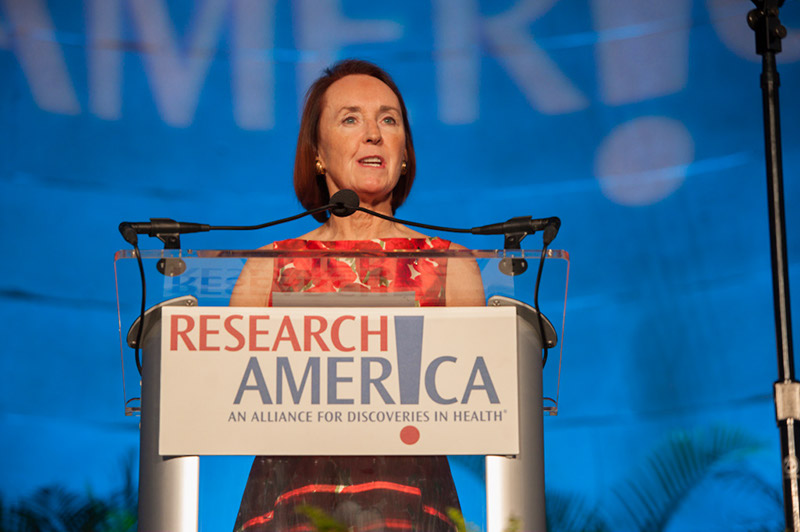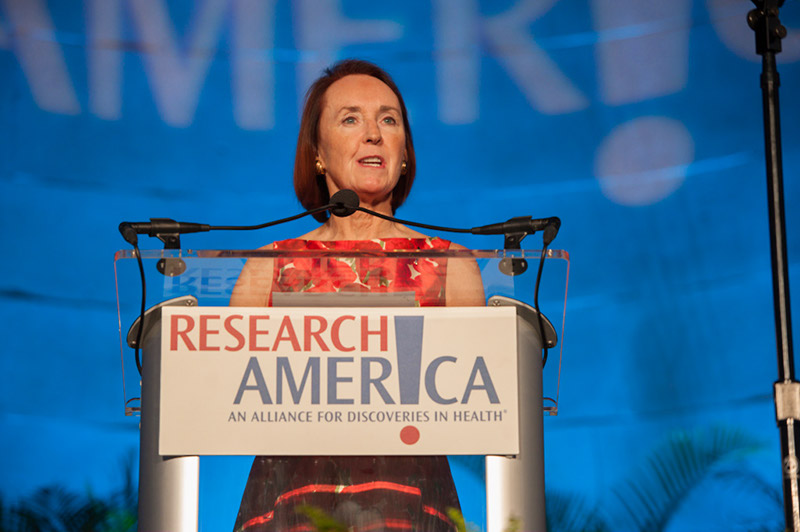An unacceptable scenario


Dear Research Advocate:
This week marks the one year anniversary of the signing of the 21st Century Cures Act. Ominously, momentum to accomplish the goals of this ground-breaking, bipartisan legislation and so much more could be forced off track by events of the last few hours: release by House leadership of a “hybrid” continuing resolution/Department of Defense bill that would fully fund FY18 Defense spending ($640B) while flat- funding everything else until (at least) January 19. The January 19th deadline wasn’t pulled out of thin air; that is the deadline for congressional action to prevent an across-the-board spending cut to meet the FY18 budget caps. The ‘hybrid’ proposal would increase funding for Defense spending and trigger an across-the-board cut for non-Defense spending.
This scenario is unacceptable and we must all say so; the potential for long-term flat funding is dreadful, ignoring both public health need and scientific opportunity, but the specter of sequestration-required cuts sends a clear message to patients, their families and researchers alike that our aspirations for better health and quality are without merit. While the Senate is unlikely to accept the new House hybrid, we can’t take that for granted, nor can we just stand by. See our letter to Congressional leadership and join us in taking action. We are strongly in favor of ‘busting the caps,’ but both the Defense and non-Defense caps are hurting Americans and both must be lifted.
If we aren’t heard from, we essentially cede the importance of our interests, and walk away from the hard work and commitment of our many congressional champions, including appropriations leaders Senator Roy Blunt (R-MO) and Representative Tom Cole (R-OK) and the authors of the 21st Century Cures Act, Representatives Fred Upton (R-MI) and Diana DeGette (D-CO). Being heard from is ‘job one’ for all of us right now; it is imperative to #RaisetheCaps for both Defense and non-Defense. I’ve said it before: let’s assure we have a nation worth defending!
Meanwhile, as is being extensively covered by the media, tax reform is rushing toward final passage and a signature by President Trump before year end. It appears that the House provision taxing graduate tuition is not included in the final bill. According to House Ways and Means Chairman Kevin Brady (R-TX) the full details of the conference agreement are expected tomorrow “later in the day,” so I won’t speculate right now. Stay tuned.
Also on taxes: Representatives Erik Paulsen (R-MN) and Jackie Walorski (R-IN) have introduced H.R. 4617, a bill to delay reinstatement of the medical device excise tax for five years. We are hopeful this will lead to a full repeal of the tax, but, as the maxim goes, ‘hope is not a plan.’ One step at a time: to prevent this tax kicking back in on January 1, please reach out to your Representatives to urge them to cosponsor the legislation.
Another priority we are tracking is the imperative of increasing resources to confront and counter the opioid epidemic. Underscoring this is the bad news that overwhelms the good in United Health Foundation’s just-released 2017 America’s Health Rankings report: smoking prevalence, the rate of preventable hospitalizations and the percentage of uninsured Americans have declined, but the drug death rate has trended ever more upward.
The Administration appears to be aligned with the need for additional efforts to more effectively combat the drug crisis with the creation of an opioids cabinet, led by Kellyanne Conway, counselor to President Trump. The goals of the cabinet also include streamlining activities across the government and more of a focus on prevention and on engaging effectively with communities to find tailored, cost-effective solutions.
Nurse scientists are among those who require robust federal support to translate innovative research into evidence-based improvements in clinical practice, including clinical practice relating to addiction. Our VP of Communications Suzanne Ffolkes describes how nursing research that aligns quality care with cost-effectiveness can resonate with decision-makers in the Friends of the National Institute of Nursing Research’s (FNINR) winter newsletter.
Sincerely,
Mary Woolley




